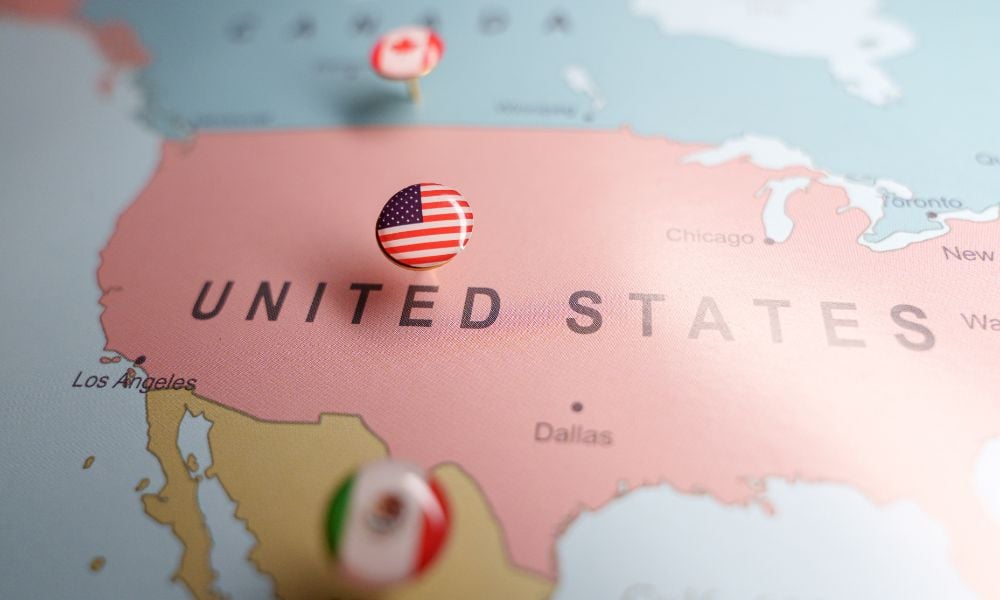Is geography Canada's biggest trade weakness?

As tariff tensions mount between the world’s major economies, a leading economist has warned that Canada’s economic dependence on the United States is set to deepen, despite long-standing efforts to diversify.
“We are in the midst of a global trade war,” Benjamin Tal, deputy chief economist at CIBC World Markets, explained in an interview with Financial Post. “And in a global trade war, like in the Cold War, you have to choose sides.”
Speaking in the wake of US president Donald Trump’s early April decision to increase tariffs on Chinese goods to 125% — while offering a 90-day reprieve for other countries — Tal said Canada’s geographical and logistical realities will override any political aspirations to reduce economic ties with the US.
Canada has signed 15 free trade agreements with 51 countries over recent decades in a bid to reduce reliance on its southern neighbour. But Tal noted that trade with the US has continued to grow. “To diversify our export machine away from the US, we have the 15 free trade agreements,” he said, “and our dependence on the USA went up despite all that.”
This growing reliance is expected to become even more entrenched during the next round of Canada-United States-Mexico Agreement (CUSMA) negotiations. Tal predicted that American negotiators will push for expanded Canadian purchases of US defence goods and natural gas — terms that may clash with the prevailing national mood.
Liberal leader Mark Carney voiced opposition to such a direction, following Trump’s tariff announcement on April 2. “Our old relationship of steadily deepening integration with the United States is over,” Carney said. “Canada must be looking elsewhere to expand our trade, to build our economy and to protect our sovereignty.”
Still, Tal believes geography and established infrastructure leave Canada with limited alternatives. “When you talk to people in the field, you realise that it’s not so easy to do,” he said.
Despite calls for economic independence, Tal foresees Canada sourcing more, not less, from the US in the years ahead. Even if a revised CUSMA results in moderate tariffs — in the range of 5% to 7% — he expects the economic ties to tighten further.
“Five years from now we will wake up and realise that our dependence on the US has risen, not fallen,” Tal said.
What are your thoughts on the recent developments in the global trade? Share your insights below.



